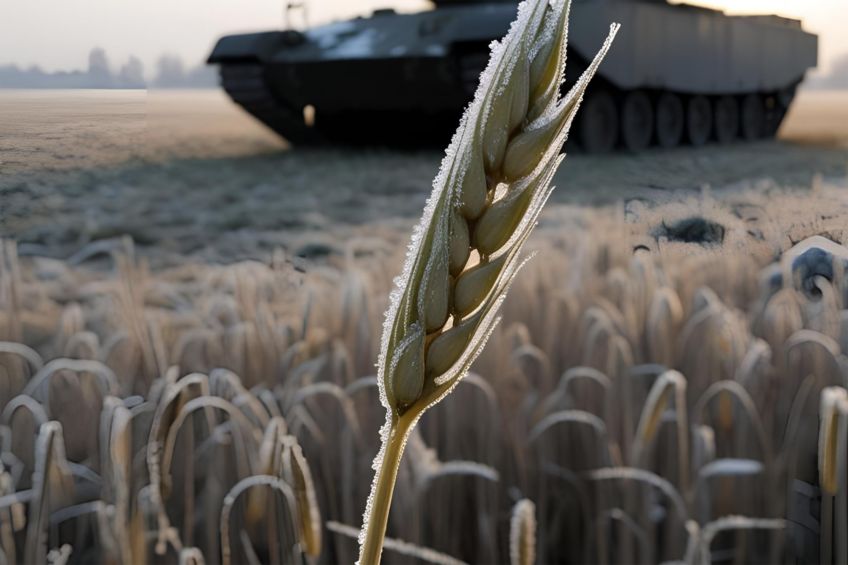Satellites Show 22% Increase in North Korean Wheat and Barley Cultivation Under Kim’s Orders

Since 2021, when Kim Jong Un ordered a shift in grain production to address food shortages, North Korea has been prioritizing wheat and barley cultivation over corn. Despite this being official policy from the Central Committee of the Workers’ Party of Korea, farmers remain unenthusiastic due to the manual labor required for seed sorting, lower yields, and concerns about soil acidification. This creates tension between state demands and the practical realities of the agricultural sector.
Analysis of satellite imagery by Daily NK revealed an average 22.3% increase in land dedicated to wheat and barley across three key agricultural regions: Turusom Island in Pyongyang, Kaechon in South Pyongan Province, and Sariwon in North Hwanghae Province. This expansion is a direct result of government directives aimed at diversifying grain production. However, farmers continue to voice concerns over the additional workload and environmental risks associated with these crops.
Turu Island in Pyongyang, located in the Taedong River, boasts exceptionally fertile soil, making it ideal for agriculture. Formed by river sediment, similar to Seoul’s Yeouido, the island primarily supplies vegetables to Pyongyang through collective farm greenhouses. According to analysis of satellite imagery from the European Space Agency’s Sentinel-2B and 2C, the island shows active cultivation of spring wheat and barley, marked by light green rectangular fields indicating standardized crop patterns.

Comparisons of satellite images taken on the same day last year and this year show that wheat and barley cultivation on Turusom Island increased by 10.5 hectares, or 26.9%, from 39.1 hectares in 2024 to 49.6 hectares this spring. These findings confirm the intensive implementation of state policy, though farmers continue to express concerns about the sustainability of this approach. While the expansion may temporarily boost food security, the long-term impact on soil health remains uncertain.
Experts note that the increase in wheat and barley cultivation is part of North Korea’s broader strategy to reduce reliance on food imports. However, low farmer motivation and potential environmental issues could hinder achieving these goals. Analysts call for close monitoring to assess whether the country can sustain this production growth without harming its agricultural sector.
For almost 30 years of expertise in the agri markets, UkrAgroConsult has accumulated an extensive database, which became the basis of the platform AgriSupp.
It is a multi-functional online platform with market intelligence for grains and oilseeds that enables to get access to daily operational information on the Black Sea & Danube markets, analytical reports, historical data.
You are welcome to get a 7-day free demo access!!!
Read also
Abbey Commodities – General Partner of BLACK SEA GRAIN.KYIV-2026
Black Sea & Danube Barley Market at a Turning Point: Demand Pressure and Regi...
US Supreme Court rules Trump’s emergency duties illegal
Mercosur: Protective measures for European agriculture
US makes concessions on pulses in new trade deal with India
Write to us
Our manager will contact you soon



